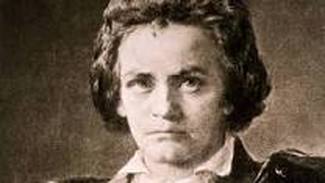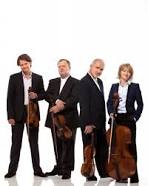For Beethoven, whose extraordinary String Quartet in A minor, the Opus 132, I heard played superbly by the Brodsky Quartet on Friday evening, it was loss of hearing.
For Bruce Chatwin, it was loss of his sight. “People would compliment me on my ‘eye’” he wrote, “and my eyes, in rebellion, gave out.
“After a strenuous bout of New York, I woke one morning half-blind. The eye specialist said there was nothing wrong organically. Perhaps I'd been looking too closely at pictures? Perhaps I should try some long horizons?”
As John Berger taught us, there are different ways of seeing. And different ways of hearing.
Beethoven’s late quartets were written in silence. He was profoundly deaf. But he was recovered from a life-threatening gastric illness and was ready to address in his music his sense of mortality. Nowhere is this contemplation on life and death more emotionally charged and exquisitely expressed than in the third – slow – movement of the A minor, a Song of Thanksgiving for his recovery.
And one reason why it could only be Beethoven is precisely because his most precious sense was gone. His deafness forced him into introspection. The sounds he heard in his head are the sounds of his hopes and his anguish, uncontaminated by the outside world. And he heard them in the purest manner. He did not sit at the piano to compose. He did not make the compromises of traditional composition. He poured it directly to the paper in profuse strains of unpremeditated art.
All this went through my own head during that third movement as the Brodsky dispensed a salve on my self-pity and paranoia at the possible prognosis for my precious sight.
It was a genuine catharsis, a much-needed purgation of pity and fear. I feel better now.
Today from the everysmith vaults: Unaccountably, this is the first time I have seen the Brodsky perform live and I resolve that it shall not be the last. But meantime, delving into the digital vaults, I discovered this morning The Juliet Letters, a joint enterprise with Elvis Costello. I can’t remember acquiring it or playing it before, but it is strangely affecting.







 RSS Feed
RSS Feed